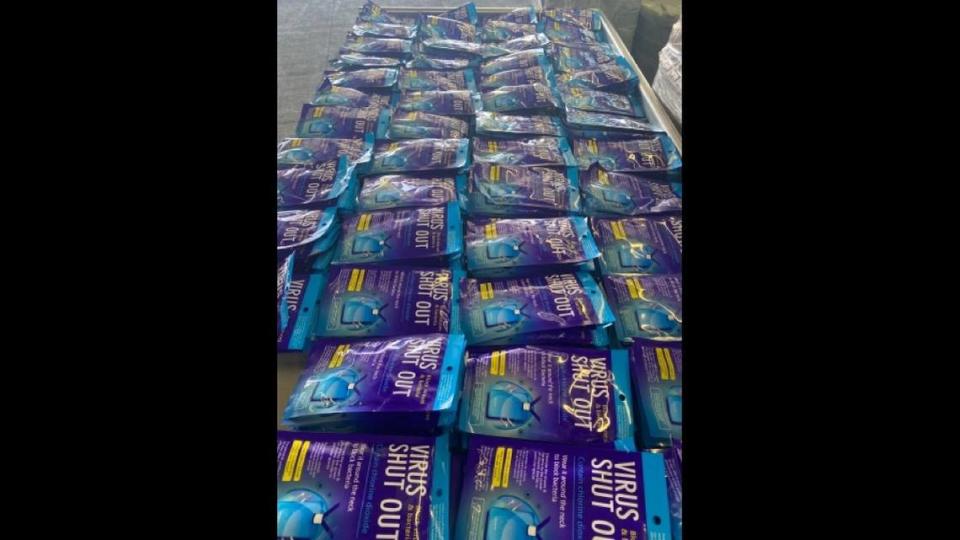30,000 ‘virus shut out’ necklaces claiming to block COVID seized in Arizona, feds say
A trucker was transporting more than 30,000 necklaces that promise an “anti-bacterial cloud” of protection against the coronavirus and other illness, according to federal authorities.
The so-called “virus shut out” devices manufactured in China were seized by U.S. Customs and Border Protection officers as the big rig attempted to make its way across the U.S.-Mexico border near Nogales, Arizona, according to a news release.
The seizure occurred in April, but was first reported on Thursday.
Resembling a name tag lanyard, the cords are attached to a blue pouch filled with chlorine dioxide meant to “eliminate the viruses and bacteria floating around you,” according to the fake product’s packaging. It comes with a few warnings, however, including refraining from putting the device “in your underwear” and keeping it out of reach of Alzheimer’s patients.
The Centers for Disease Control and Prevention warns that prolonged exposure to chlorine dioxide can cause eye, nose and throat irritation, as well as breathing issues. The U.S. Food and Drug Administration has issued similar warnings about chlorine dioxide products purporting to treat COVID-19, adding that “it is not aware of any scientific evidence supporting their safety or effectiveness.”

The odorous gas is typically used to sterilize or disinfect medical equipment, tools, produce and surfaces.
“The sale of these products can jeopardize a person’s health and delay proper medical treatment,” former FDA Commissioner Dr. Stephen M. Hahn said in a 2020 news release.
Border protection officials said the “virus shut out” necklaces valued at nearly $480,000 were discovered among other counterfeit items and apparel being carried on the truck.
To avoid being duped, the agency recommends purchasing goods directly from the trademark holder and reading a seller’s reviews before clicking “add to cart.”
Last but not least, “if the price of a product seems too good to be true, it probably is.”
Mysterious cocaine packages washing up on Texas beach, cops say. Don’t pick them up
Woman shaves head in fake cancer scam to swindle $15,000 from donors, Georgia cops say
Pounds of cocaine found stuffed within shoes inside Georgia airport luggage, feds say

